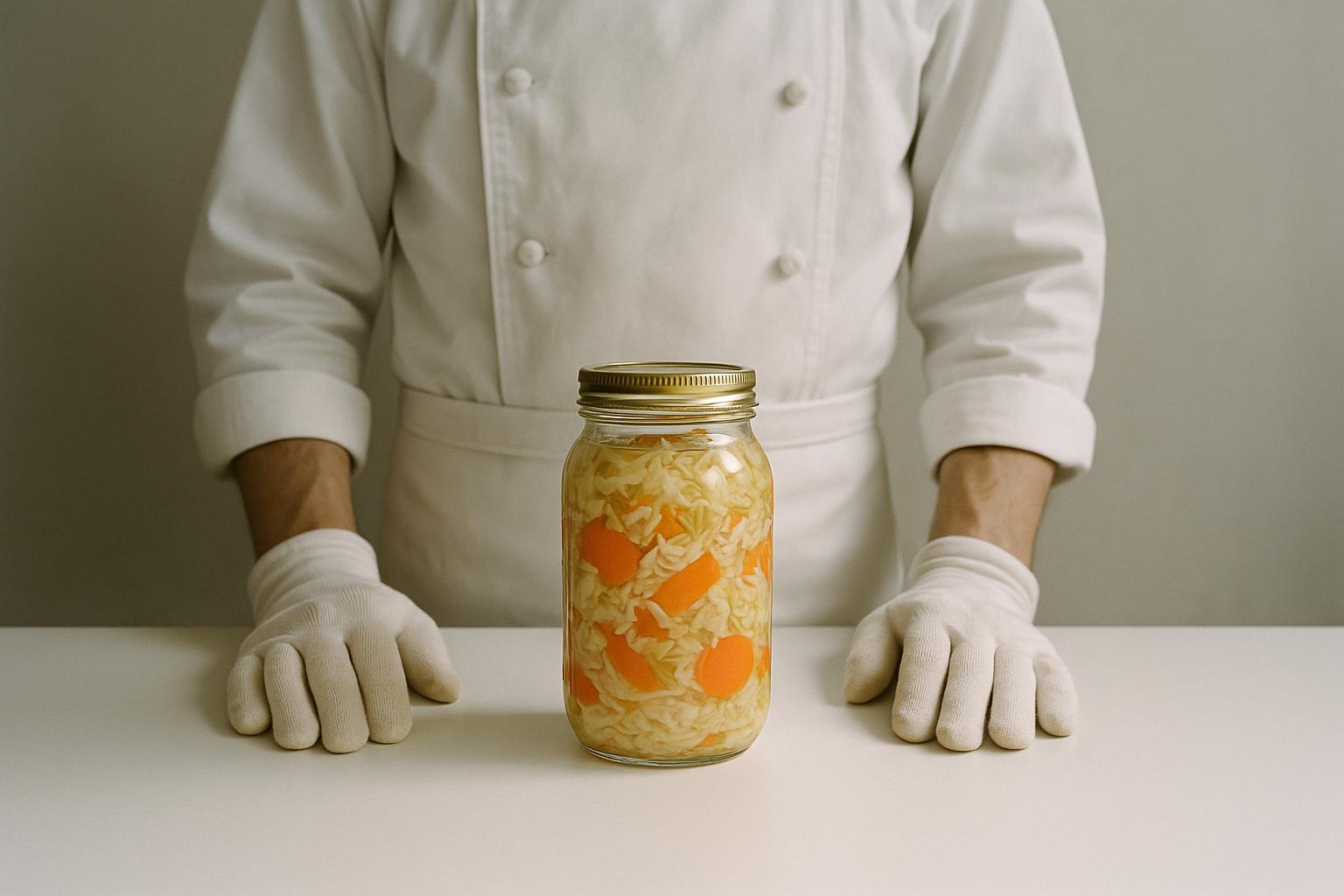Chef Doug McMaster’s pioneering journey to establish the world’s first zero-waste restaurant has transformed more than just his kitchen; it has challenged conventional thinking within the food industry about waste and sustainability. The catalyst for McMaster’s mission came from a simple yet provocative question posed by Dutch-Australian eco-architect Joost Bakker in 2011: “Could you not have a bin in the kitchen?” This query set McMaster on a path to eliminate waste altogether from his restaurant operations, an ambition realised at Silo in Hackney Wick, east London, where no bin is found in the kitchen or dining area.
Silo’s approach extends beyond avoiding food waste. McMaster’s holistic model involves meticulously sourcing from producers who deliver in reusable crates without single-use packaging, turning inedible remains into compost or fermented products. Wine bottles are repurposed inside the restaurant into plates and lighting fixtures, crafted using an on-site kiln, highlighting a commitment to self-sufficiency. Every element of the restaurant—the cork flooring, sheepswool ceiling insulation, and upcycled furniture and tableware—speaks to an ethos where sustainability permeates the very fabric of the dining experience.
McMaster is clear that the zero-waste ethos at Silo is not a passing trend or token gesture but a comprehensive philosophy. He draws inspiration from nature, viewing it as a closed-loop system where waste does not exist but is a "human thing that we should design out." His conviction is that society’s current disconnect from natural cycles underpins environmental depletion. “We’re currently divorced and isolated from nature, and waste is a symptom of this,” he explains. Despite the formidable environmental challenges, McMaster holds an optimistic view, believing that nature’s extraordinary capacity to regenerate offers hope if humanity adopts a new worldview centred on sustainability.
Since Silo opened over a decade ago—initially in Brighton before relocating to London—public perception has shifted markedly. Where once McMaster was regarded as extreme, sustainability conversations are now mainstream. Yet the journey remains challenging; he concedes that the restaurant still feels like it is "swimming upstream."
Innovation in waste reduction at Silo reaches remarkable heights—today, the restaurant utilises 99 percent of its produce, a figure far surpassing the typical fine dining establishment, which might waste up to half of its ingredients. Central to this achievement is the use of koji, a fermented culture traditional in East Asia. McMaster and his team have mastered the technique, transforming scraps that would otherwise be discarded into rich, umami-packed ingredients like miso or fish sauce. This process occurs at Flux, their nearby ‘fermentation factory,’ enabling extensive production of koji-derived products that enhance flavours while underpinning their zero-waste philosophy.
Silo's menu not only exemplifies culinary creativity but also communicates the closed-loop principles through signature dishes. The "quaver," a deep-fried snack made from bread waste transformed into miso and topped with grated goat's cheese, embodies the sensory appeal McMaster believes is essential to popularise zero-waste cuisine. Another staple is the ice-cream sandwich, crafted using bran wafers and buttermilk ice cream derived from their own churned butter, showcasing how even ‘waste’ ingredients can be elevated to gourmet status.
McMaster's zero-waste commitment also encompasses systemic change beyond individual actions, emphasising the need for industry-wide shifts to achieve meaningful sustainability. By sourcing directly from farmers with reusable packaging and meticulously closing material loops, Silo represents what can be achieved when restaurants take full responsibility for every product entering their premises.
The significance of Silo’s model extends beyond its immediate operations. It challenges the broader food and hospitality sectors to rethink waste, demonstrating practical, scalable approaches to sustainability. McMaster’s work is increasingly influential, inspiring others to adopt zero-waste practices while pushing the boundaries further with fermentation science and upcycling innovations.
In a world grappling with resource depletion and waste crises, Doug McMaster’s Silo serves as a striking example of how creativity, commitment, and holistic thinking can transform environmental challenges into opportunities for abundance and innovation.
📌 Reference Map:
- Paragraph 1 – [1], [6]
- Paragraph 2 – [1], [4], [6]
- Paragraph 3 – [1], [2]
- Paragraph 4 – [1], [2]
- Paragraph 5 – [1], [5]
- Paragraph 6 – [1], [3], [5]
- Paragraph 7 – [1], [6], [7]
- Paragraph 8 – [1], [2], [4], [5]
Source: Noah Wire Services
